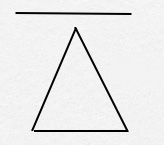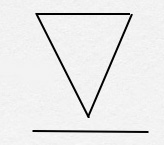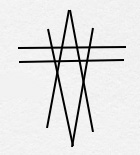|
The Gift of Giving Nov. 20, 2005 First Presbyterian Church, Skaneateles
That’s a provocative thought. Here is the Master of the Universe, the creator and upholder of the galaxies, in need of my help. Now that’s self-reliance with a Capital Self. What an interesting, New-England-Yankee spin on the idea of prayer. Hey God, let me give you a hand! What do you need, buddy?”
This has been an unusual year in an unusual decade. The plagues around us are almost biblical, apocalyptic. Floods, windstorms, earthquakes, bird-flu plague, wars, insurgency, the Yankees and Red Sox both out of the playoffs. Catastrophe. Here in the US we actually lost a major city. New Orleans’ submergence displaced tens of thousands of people living at the margin, with no resources. The governments seemed unable to help. And almost spontaneously across the country, individuals, PTA’s, churches, youth groups, all pitched in to give what they could to lend them a hand. Then several earthquakes and hurricanes later, we seemed numb and non-responsive to other cries for help from other victims.
That sign, “Ask not what God can do for you, but what you can do for God”, got me turning over in my mind what charity and helping others is about. Is it me helping God? Me doing the work God somehow can’t do, or won’t do, or overlooked? Is it Me Being God? Aren’t these disasters just teaching people a lesson – plagues visited on people for what they’ve been doing? Or not doing? Think of the plagues of Egypt, or the wiping out of Sodom. Isn’t it just God’s justice when bad things happen to people? Shouldn’t we just congratulate ourselves for avoiding the bullet and thank God for sparing us this particular woe?
Many of us have subconscious ambivalence about disasters that fall on other people. Deep down there is the quiet whisper of a thought that maybe they deserved it. And we didn’t. These aren’t pretty sides of us, but it’s helpful to look at ourselves honestly. After all, these thoughts have been with us humans since we were pre-literate. Even the ancient pagans, our fore-fathers and fore-mothers, developed ways of appeasing powerful gods, getting these gods to look the other way, paying them off to spare their lives and families from the natural disasters all around them. I want to look
at a couple of pictures. Nothing fancy, just a couple of lines, really.
These little drawings help me understand my own relationship to God
and to other people. They also help me understand the idea of “letting
go” of excess baggage, things that hold me pinned down to the
ground, that interfere with my own spiritual development. Here is the
first picture. It is a dot that illustrates the universe at the moment
before the Big Bang. It is not drawn to scale. Universe pre-Big
Bang Here is a little
line drawing of how humans first must have thought of themselves
here on the ground – as
they began to develop the power of thought. Mankind Alone
Pretty lonely. Just them and the other animals. On the other hand, everything was peachy-keen, sort of Garden of Eden like. Mankind in its infancy was much like a smiling infant. All its food needs, warmth and shelter were taken care of just fine, thanks. Anxiety? What's to be anxious about? Our early brains were somewhat smaller, speech not yet developed and powers of imagination pretty limited to pictures of delicious fruits, nuts and tasty small animals. But empowered by whatever drives human development upwards and to the more complex, this Garden of Eden state of Oceanic Bliss did not last. As our brains developed so did language and abstract conceptual ability. Now that our primitive human ancestors could think somewhat as we do today, humanity became more aware of what was going on around them. Before long, the idea that something or somebody powerful caused things to happen here on the ground – or not happen – took hold. Mankind
and Unapproachable gods People imagined unseen powers or spirits or gods far above the earth. These powers caused or withheld the rain, threw lightening bolts, made thunder, floods, earthquakes, disasters, disease and death. Or they caused the fruit to appear on the trees and bushes. Gods. Unseen powers. These gods are not visible to us. They are out of reach. Worse, they are capricious, unpredictable. This drawing shows how primitive humans might have thought of themselves in relation to powerful gods who had complete and arbitrary control over the lives of humans and other animals down here on the ground. In this view gods are up there. Humans are down here. Look out if they throw a bolt of lightning over the side! But our fathers
and mothers were not stupid. They thought, “Maybe
if we give those powerful gods a payoff, things will turn out better
for us.” This idea of payoff may have been the original motivation
behind the idea of sacrifice. "Maybe if we lay out a present for
the gods, their attention will be drawn away from us and towards the
gift."
This represents the idea of humans down here influencing these powerful gods up there in some way. Attracting their attention to the payoff, or appeasement we have for them. Sort of a primitive prayer to be left alone. Sometimes it worked. Sometimes it didn't. To improve the odds. the next bit of logic would be to lay out an even better gift. "Maybe if the gift is good enough the gods will really enjoy it and leave us alone. Or, in a more complex thought, "Maybe if our gift is really good, the gods will be friendly to us and like us and won't hurt or kill us." This idea of giving to the gods is an appeasement, a buy-off or a payoff to capricious and dangerous god.
Now, who knew what this dangerous thug of a god might want from us, or find desireable? A natural idea was if we found an object, food or something desirable and valuable, the god would probably value it also. This line of thought leads to the idea of sacrifice as selecting something really valuable to us and presenting it to the gods. In the beginning it was probably a selection of the most desirable fruits, or the best of the crop, or part of a choice animal killed in the hunt – or maybe the life of a whole animal. In really desperate times – cataclysms of earthquake or flood or drought, we may have upped the ante, the value of the gift. It was a short step to offering the most valuable thing of all, a human life as a sacrifice. A child, or a virgin, say. In modern times, this same line of thinking still operates for some people. Of course it is not acceptable to offer human sacrifice, so we have substitutions. We offer gods or God something of value as an appeasement. For some people, giving or tithing or charity towards others is a way of getting ourselves off some dangerous hook. Sort of a psychic payoff to God or the fates for sparing us the evils that befall the unfortunate.
This appeasement idea is also what's behind Idol worship. Idol worship is another way to get closer to the unreachable god. Make a representation of the unreachable god out of wood or metal. It’s a short step from there to worshipping the idol itself, as if the wood or metal is now the unreachable god. That way you can see whom you are sacrificing to, and even have a little conversation with it. Pretty primitive. In a sense, this is the idea behind our thinking of charitable giving and personal sacrifice as appeasement. Charitable giving motivated by the idea of appeasing God is a lot like idol worship, idolatry. Oh, what a situation if that’s where we are mentally! But, I think most of us have grown beyond that primitive idea.
The old Egyptian pharaohs were so mad they actually thought they were gods themselves. You can recognize this pyramid shape as their reach for immortality. THEN in our little story, a big change took place. God, the One God,
reached down to us. He spoke across the gap between Olympus or Heaven
above and us down here on the ground. Here is a picture of something
new happening. God
reaches down to Mankind
This is a picture of God reaching down to humans. In our books of Genesis and Exodus, God makes his presence known to us. He does it with a word. He speaks. He speaks to Noah, to Abraham. God is no longer remote. He is not arbitrary. He tells us he will act. And these actions are not arbitrary and capricious. He is deliberate. He makes promises. Abraham prepares a sacrifice to the God who spoke to him. This sacrifice is not an appeasement, but a sign of obedience. God gives Abraham instructions. First God tells Abraham to arrange some animal parts for a sign. Abraham obeys, and God does miracles of fire and water, confirming that, yes indeed, this is God speaking. Later, Abraham is subjected to the greatest test of obedience. He is asked to sacrifice, to kill, his only son, Isaac. In this familiar episode we see Abraham's willingness to follow God's orders and sacrifice the most valuable thing in his life, the fruit of God's promise, an heir to create generations of descendants. Abraham draws the knife to offer the life of his precious son. But at the last moment God stops Abraham's knife hand and tells him to look at the ram tangled by the horns in the nearby bushes. God provided a substitution.
Even more dramatically, God enters human history. God reaches down to us as we are reaching up to him. God lowers himself to enter our world. On Mount Sinai He gave us a set of rules for how to live our lives – daily, seasonally and yearly. Our reaching up to him intersects with his reaching down to us. This is the First Covenant.
Moses receives the Law and the Commandments. God demonstrates his power for specific good by freeing Abraham’s descendents from literal slavery in Egypt and planting the extended family in a gifted land. Here, in the Tent and the Temple, sacrifice is set up as a routine activity. Animals are slaughtered regularly, their bodies burnt and some of the meat given to the priests, the ministers. Tithing is instituted. But God doesn’t ask for this sacrifice because he needs a snack. To the Israelites, sacrifice was and is a sign of acknowledgement of the presence and power and authority of God. Like Abraham, the sacrifice is offered as obedience, not as a payoff. God does not need the blood of bulls and oxen. As he says in Psalm 50: For every beast of the forest is mine, the cattle on a thousand hills. [11] I know all the birds of the air, and all that moves in the field is mine. [12] "If I were hungry, I would not tell you; for the world and all that is in it is mine. [13] Do I eat the flesh of bulls, or drink the blood of goats? [14] Offer to God a sacrifice of thanksgiving, and pay your vows to the Most High; [15] and call upon me in the day of trouble; I will deliver you, and you shall glorify me." God wanted this sacrifice as a sign of our obedience, and to strengthen our obedience and our faith. God does not need to receive. It is we who need to give. Our giving signals and confirms our obedience and thanksgiving to God. But God is not through. He announces something new to come. He says something new, through Isaiah, Jeremiah, Ezekiel, and Daniel, his prophets. God speaks in the first chapter of the Book of Isaiah: What to me is the multitude of your sacrifices? says the LORD; I have had enough of burnt offerings of rams and the fat of fed beasts; I do not delight in the blood of bulls, or of lambs, or of he-goats. God is not personally needy. He announces what he really wants from us, “to do justice, protect the poor and downtrodden, the orphan and widow… And why does he ask for this? For himself? No! For our own good. The gifts he asks of us are not for him, not even so much for the recipient, but for the giver. The gift is for the giver. Then, God speaks to us through Jeremiah, the prophet: 31] "Behold, the days are coming, says the LORD, when I will make a new covenant with the house of Israel and the house of Judah, [32] not like the covenant which I made with their fathers when I took them by the hand to bring them out of the land of Egypt, my covenant which they broke, though I was their husband, says the LORD. [33] But this is the covenant which I will make with the house of Israel after those days, says the LORD: I will put my law within them, and I will write it upon their hearts; and I will be their God, and they shall be my people.
Finally God joins himself with us, becoming Man to make Man God. He lifts us to him, and narrows the path to show us the clear way to him. And in doing so, he also shows us what sacrifice really is – a gift, not an appeasement. God does not need to appease himself. He gives us the ultimate gift – himself. It is a sign of love and forgiveness. He shows us the way to life is to let go of self, to crucify our ego, our material ideas. He shows us the way to freedom is to release, to let go. And when we let go, sacrifice our ego, we can rise. We jettison the ballast of our excess attachment to material goods so our souls and spirits can rise.
In St. Luke’s account of the Sermon on the Mount, Jesus explains… Give and gifts will be given you. Good measure, pressed down, shaken together and running over, will be poured into your lap; for whatever measure you deal out to others will be dealt to you in return. This is not a description of a begrudging gift, a small tithe, a token gift. Jesus is describing a fully given gift, a gift given with heart wide open.
But of course it’s dangerous to walk around with a wide open heart, pouring gifts out to anyone who asks. The world is full of con artists, bunkos, hustlers, and plain old lazybones – people who aren’t so much in need as working a scam. Fortunately for us, in the church we have elected a group of elders whom we charge with discerning where a gift is truly needed; what purpose is needful, legitimate and good. And our elders have put forward The Lost Boy’s Clinic as an important recipient. You all know of this project, and the value it will bring to so many. The simple, important message this morning is this. Don’t misunderstand. God does not need for you personally to give a gift to this project. God will get it done. This project is a gift to you, a place for you to give safely, to give freely and with a whole heart. It is an occasion for you to grow. If you give good measure, pressed down, shaken together and running over, Jesus assures us you will receive full measure in return. But what you receive full measure of is not material goods. What we receive is not winning the Lottery or Publishers' Clearing House. What we receive instead is a freeing of the self, a release from the adhesions of material things, the stuff that drags us down and and hampers our ability to rise to greater things. We receive the gift of freedom in the Spirit, release from care and anxiety.
Will we get a check back in the mail? No. We don’t need that. God knows exactly what each of us really needs, and he promises we will get that with the same measure with which we give out our gift. What God promises us is life itself, and life more full and abundant. Of course, to reach that promised life in this life and the next, we are called to imitate Christ. We are called to let go of our material baggage so we can rise with him. Or to be more exact, allow the Christ already within each of us, to arise within each of us. When we begrudge our gifts, give sparingly, when we hang on excessively to our goods and money, we are like the ram caught by the horns in the bushes. We make our own thickets. As Jesus said, Where your treasure is, there your heart shall be also. And, where are we going on this Way to Life? Through His prophets,
through our Gospels, through our ministers and through our mystics,
God invites us to join with Him in Total Unity, the Complete Union
to come. When we will be in union with Christ and He in us and all in the Father. As he promised. Of course, the Christian mystics – and physicists – would take it a step further, and describe the return to complete unity of all with God this way. A reversal of the Big Bang with the job completed. Redemption of all.
Well, I find this little set of sketches helpful. Think of this little exercise as the Cross of David; the Star of David as a movement on the way to the Cross of Christ. And think of your giving both to the Lost Boys Clinic, and your other good church sponsored tithing and giving, not as a bribe or appeasement to God, nor as what you can do for a needy God, who is not needy at all. Think of your giving as prayer. Think instead of your giving as a release of the loving, compassionate, giving and forgiving God within you. Giving is prayer, articulate prayer. Giving is prayer in the silent language God appreciates, the outpouring, wholehearted thankful action of his people. As a great, dear pastor once said, You can't take it with you, but you can send it on ahead. I wish you all a happy, giving Thanksgiving. |
| return to gort.net home | sermons and Bible studies |




 God reaches
down to meet Man reaching up
God reaches
down to meet Man reaching up 
 God
joins with Man
God
joins with Man  The
complete Union to come
The
complete Union to come